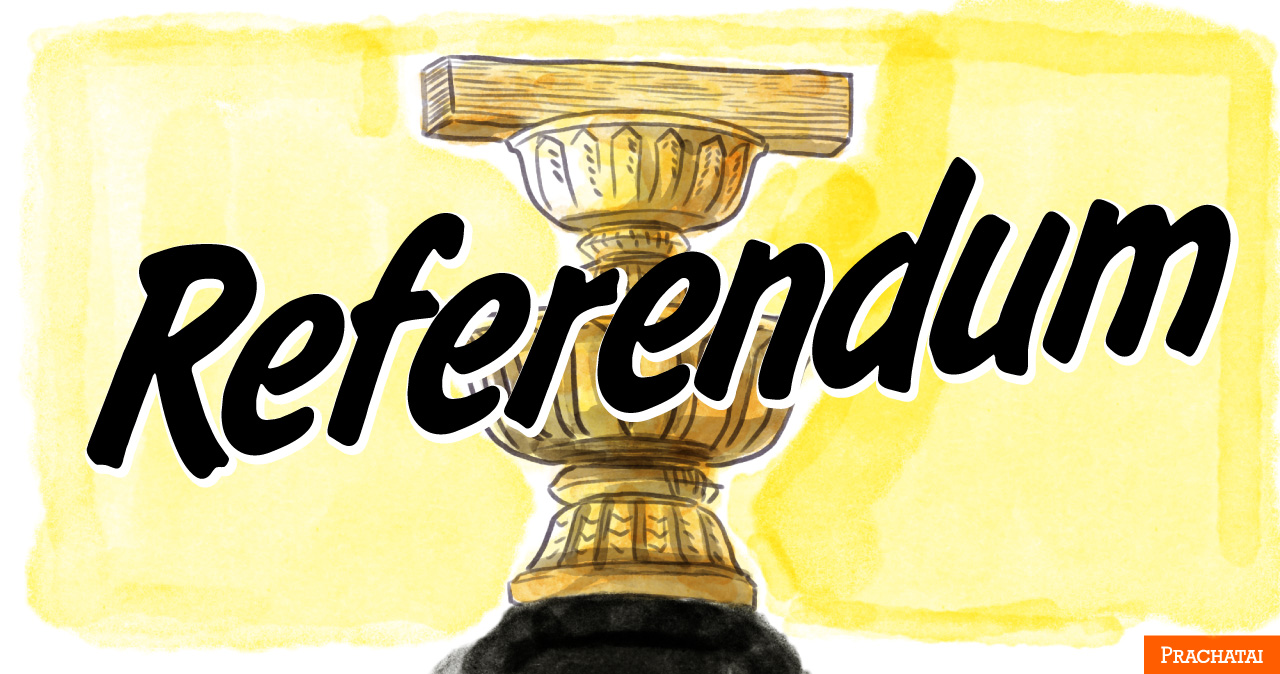On 29 June, the Constitutional Court gave a unanimous ruling that Article 61 of the Referendum Act was constitutional, despite accusations from various quarters concerning its legal ambiguity, excessive punishment, and suppression of freedom of expression.
Article 61 of the Referendum Act imposes a prison term of up to 10 years, a fine of up to 200,000 baht and loss of electoral rights for five years on anyone who publishes or distributes content about the draft constitution which deviates from the facts, contains rude or violent language, or threateningly discourages voters from participating in the referendum.
On Monday, 4 July 2016, Matichon Online published the unofficial pre-verdict judicial finding in the case. The Court analysed that generally, a referendum should be held under a free and open political climate. However, the August referendum was a special case since it is a ‘constitutional framing’ referendum, not a ‘constitutional changing’ referendum, meaning that the referendum process did not have to comply with normal democratic mechanisms.
The finding also states that although the 2014 Interim Charter guarantees basic freedoms of the individual, those freedoms can be limited either for the sake of national peace and order, good morality, or to protect other individual rights and Article 61 complies with this principle.
For the allegation that the Act contains ambiguous terms and excessive punishment, the Court ruled that the problematic terms, which are ‘violent language’, ‘rude’, ‘threateningly discourages’, and ‘seditious content’, are actually unambiguous. Moreover, although the law might allow excessive punishment, it does not state a minimum punishment so the courts can deliver a sentence as they see appropriate, adding that if people find the sentence excessive, they have the right to appeal.
For all these reasons, the Constitutional Court ruled that Article 61 of the Referendum Act is constitutional, adding that the law actually fostered reconciliation as it encourages people to talk to each other with a ‘friendly attitude.’
Article 61 has repeatedly raised various public concerns. At least two people have so far been prosecuted under the Article. Various organizations such as the Pheu Thai Party, the Democrat Party, and ASEAN Parliamentarians for Human Rights, have condemned the Article for its ambiguity and demanded an amendment. Earlier in June, the Office of the Ombudsman in Thailand requested the Constitutional Court to rule whether the Article was unconstitutional or not. The Court ruled it constitutional.

